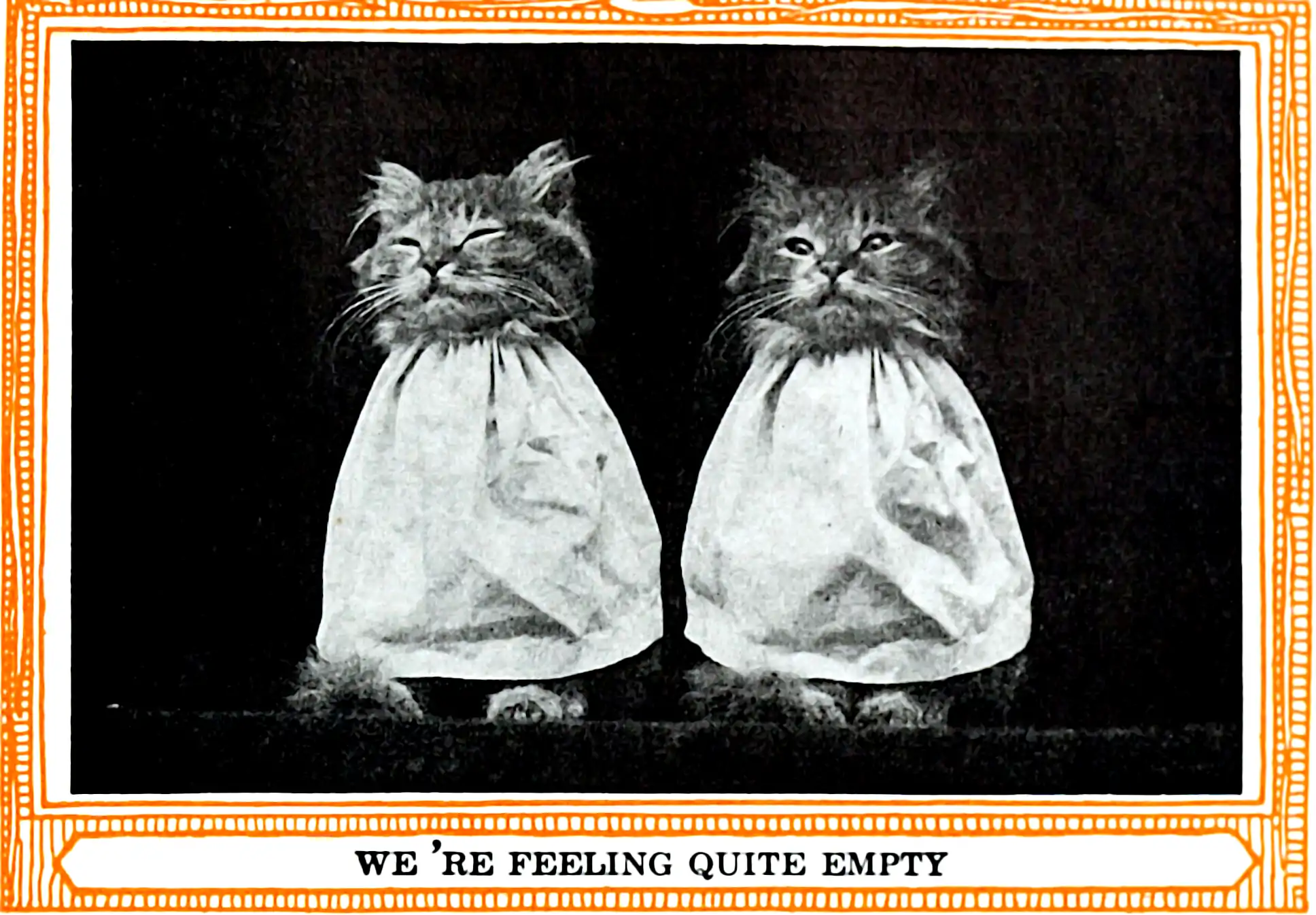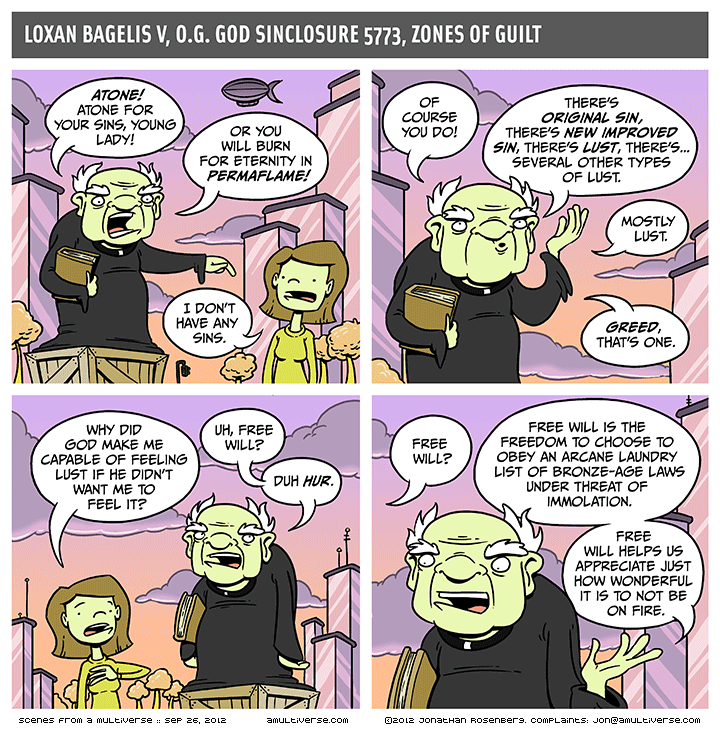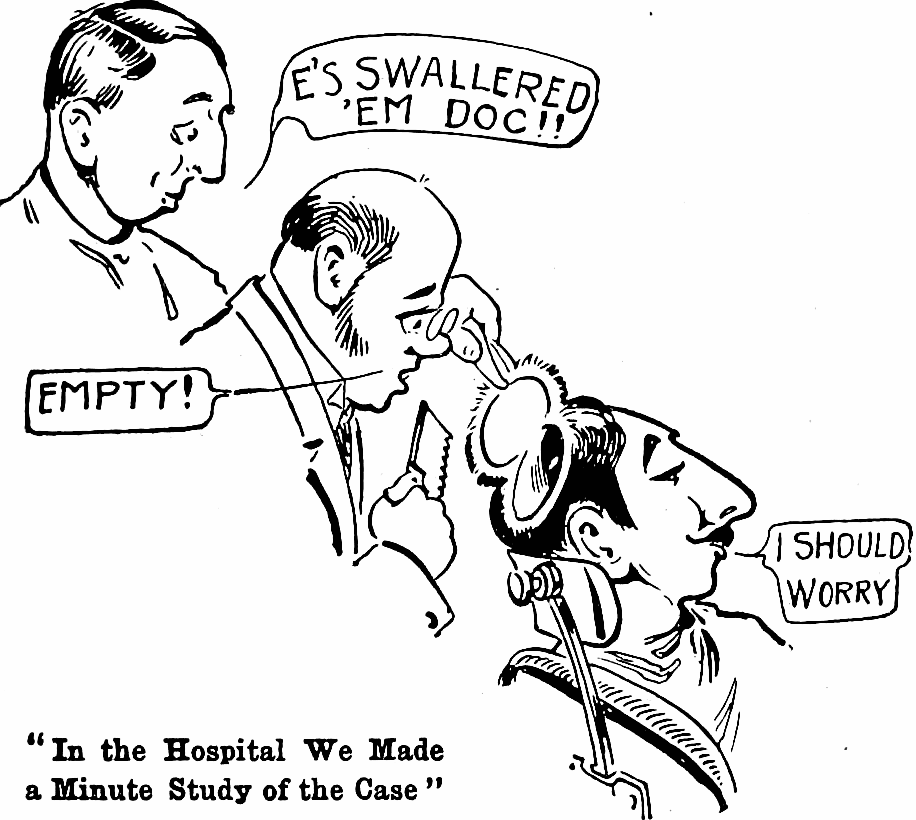Free will
Let’s conflate stochastic dynamics with stochastic control
March 16, 2012 — September 29, 2024
Suspiciously similar content
The unsatisfying semantic debate that few feel the need to have the correct vocabulary for, but many feel the need to have opinions on. If you are a philosopher of these things, you can move on. I likely have nothing to add for you. Me, I don’t know what “free will” is, but I know what isn’t it when I see it.
I had a long argument with a drunk gentleman over dinner the other night. He was arguing that free will does not exist. I was arguing that his statement “free will does not exist” has no empirical content. Naturally, we did not come to an accommodation. I think he took me for a fool in thrall to hopeless idealism about the human soul, and I took him for someone complaining about the consistency of 1st century metaphysics when scrutinized through a 17th century lense.
This kind of tedious dinner table maundering can be confused for debates about Monism/Dualism in poor lighting conditions. Also “is” vs “ought”.
Lou Keep rants at slightly too much length:
the question isn’t actually asking what it thinks it’s asking… humans are rocks, which is why we have reason and free will.
Schopenhauer: Spinoza (Epist. 62) says that if a stone projected through the air had consciousness, it would imagine it was flying of its own will. I add merely that the stone would be right.
So, you know, nice quotes.
It gets interesting when we watch justice and responsibility collide. This is, IMO, the bit of “free will” I would like to have drunkenly mansplained to me over dinner. Dan Hirschman recommends:
Check out the article for more, including Brandmayr’s analysis of how social scientific invocations of free-will vs. institutional constraint are themselves shaped by their positions in an antagonistic process. But mostly just check it out for the strange feeling of reading cultural anthropology and neuropsychology fight over whether seven scientists are culpable for the deaths of 306 earthquake victims.
Anyway, I don’t feel that any of these models cleave reality at the joints. Slightly more natural to my mind stuff like Scott Aaronson’s setup (Aaronson 2013) in which he argues that while some freewilleteers concern themselves with determinism, a more useful notion might be predictability. I am sure there is more research in that domain somewhere. But I am not excited enough to pursue it.
Luke Muehlhausr maintains a terse list of links which I presume does for a good overview.
- Tom Clark, Fully Caused: Coming to Terms with Determinism | Naturalism.org
- Yudkowsky, Free Will (Solution)
- The Brain and the Meaning of Life (Thagard 2012)
- Free Will (Harris 2012)
- Freedom Evolves (Dennett 2004)
- The Problem of the Soul: Two Visions Of Mind And How To Reconcile Them (Flanagan 2003)
- Good and Real (Drescher 2006)
- Barbara H. Fried, in Beyond Blame analyses free will in terms of how it is used to justify punishment.
Luisa and Keiran on free will, and the consequences of never feeling enduring guilt or shame:
I’ll give you an example. You know that I wrote a pilot to a TV show, shared it with a bunch of people, happened to get good feedback. Basically, when I write this thing and I share it with people, someone else might have the experience of if they get positive feedback, they would feel really proud of writing this thing. Like they created this thing and feel really proud about that and it’s amazing.
My experience is kind of like playing a slot machine, where I write this thing and I share it with people, and basically winning the jackpot is finding out that I’m in a world where I’m like Vince Gilligan, who created Breaking Bad—I’m like as good a writer as he is. Everyone loves it so much that they just insist I have to drop everything and just make this thing. That is like a world that I would love to be in. But I’m just like along for the ride, where I’m just waiting to find out if that’s true: if I win the jackpot, that’s true; if I lose, then everyone hates it, right? And everywhere in between. But I just watch and see, just like, “Oh, does anyone like it?”
In this case, a lot of people liked it. And I was like, “Oh, that’s nice. It’s nicer to live in a world where people liked that thing I wrote than not.” But there is no deep sense of satisfaction—because again, I can’t get away from this thing of like, if I’m a decent writer or not, I can’t choose it either way. I can’t tell this story where I can go back far enough, where I’m like, “Yes, I am a good writer, because I put a bunch of work into it in 2013, and I definitely chose to do that.”
My quoting this is not an endorsement of the ideas expressed. In particular the idea that “empathy” and “free will” get inversely correlated in this conversation is IMO an indicator that their definitions are confounding the issue. The slot machine analogy really draws it out though.
Maybe some of the Wolpert stuff is interesting? Some of that sounds like it impinges on predictability (Wolpert 2018b, 2008, 2018a).


